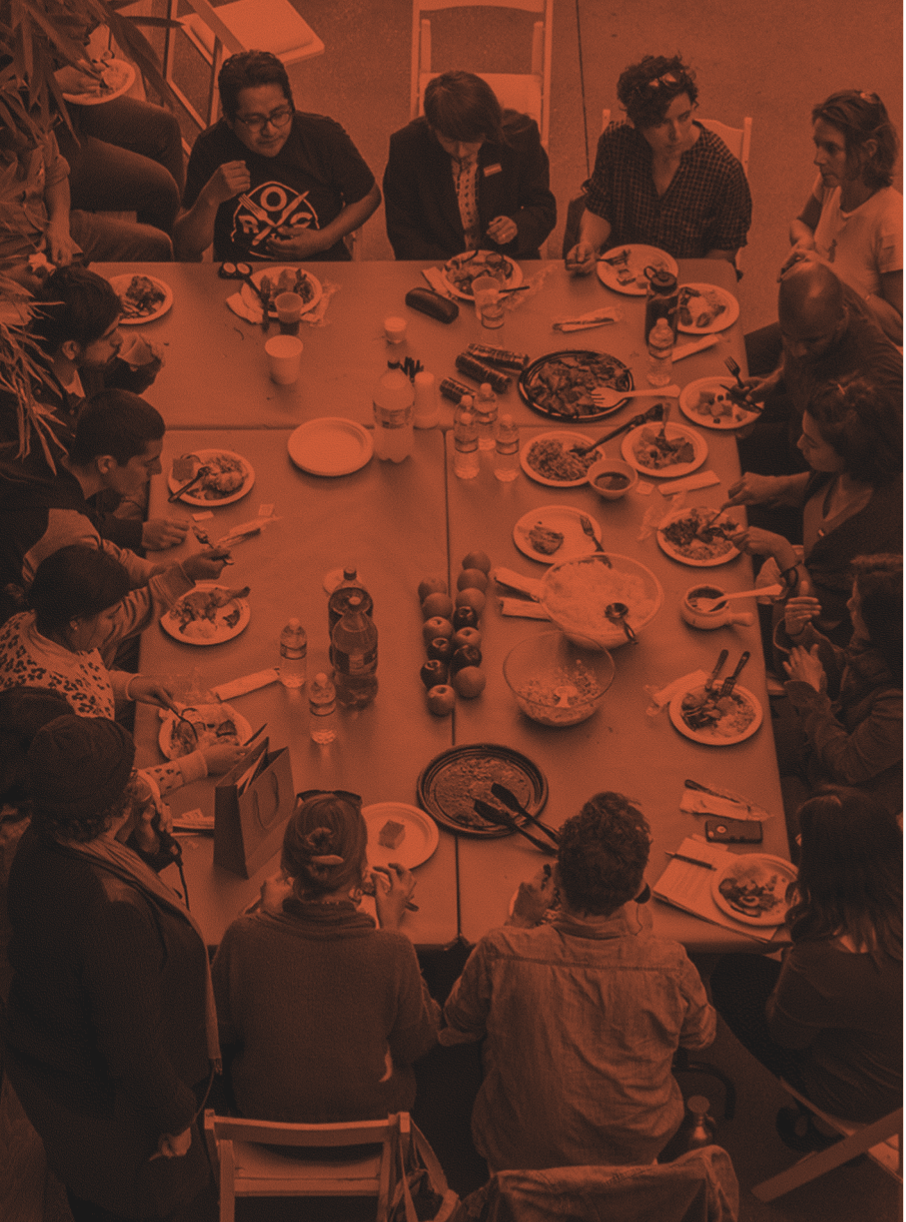Antena Los Ángeles
Jen Hofer and Alexia Veytia are members of Antena Los Ángeles, a collective dedicated to language justice advocacy and organizing. Language justice includes the idea that we have a right to communicate in our own language(s) and a right to participate fully in all the spaces in which we work or live. Language justice is based on a shared commitment to practices of equitable communication across languages and a belief in the language rights of all people. Antena Los Ángeles supports groups and organizations through interpreting, translation, consulting, training and facilitation.
Antena/Antena Los Ángeles w/ Cocina Abierta & Restaurant Opportunities Center-Los Angeles: Food Labor Justice + Language Justice: A Bilingual Exchange, 2016. The Hammer Museum. Photo by Barbara Katz.
Our stories live within us
In 2012, Jen Hofer was part of an interpretation team working with the Caravan for Peace with Justice and Dignity led by Mexican poet Javier Silicia and others to raise awareness about the impact of the violence from drug wars. Hofer recalls a moment when they felt the power of language justice work as healing.
“There was something about that evening that the folks on the caravan who were so passionately talking about the loved ones they had lost and the feelings that came up in that. [As interpreters] normally you’ll go fifteen to twenty minutes and then you’ll switch with your partner. We were switching every three to five minutes because we would then walk around the back behind the place where people were presenting, to weep and then come back and switch with the other person. We didn’t even have time to communicate with each other about it. We just saw how the other person was feeling and had an interpreter-intuitive sixth sense. So in terms of self-care and community care to keep ourselves able to interpret well—it’s not about what those stories bring up in me. I want to be compassionate, but I want to allow that person’s story to come through. It just encapsulated so many different things about the connection between healing work and language work and how deeply our stories live within us and how deeply they live in language. Stories go beyond language, but they’re also part of the texture of language.”
It’s revolutionary to be able to connect
Alexia Veytia recalls an organizing meeting with Korean Immigrant Workers Alliance as part of a simultaneous language interpretation team in Korean, Mandarin, English and Spanish.
“Something that I think about a lot, even for myself, is healing from isolation. That isolation is something so embedded in the system [we live in]. I was interpreting and someone made a joke. And as we were doing relay [interpretation across multiple languages], you could hear people starting to laugh at the joke within a nanosecond of difference. And it was the most beautiful thing. People were looking at each other who otherwise wouldn’t have been able to share this laugh. Laughter is something so universal and so necessary for connection and people listening to the stories. That for me, that was just incredible. It was truly something revolutionary to be able to connect in this moment and not be isolated anymore.”
LACDMH Strategic Plan Points: 1a.1 education, 1a.2 engagement, 1a.3 follow up, 1b.2 kin, 1b.3 purpose, 1c.1 assessment, 1c.2 service coordination, 1c.3 outpatient care, 2.3 restorative care, 4.2 organizational process, 4.3 organizational outcomes.
